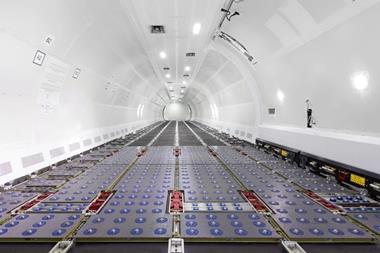President Trump’s success in winning higher rates for e-commerce packages entering the US postal delivery system still leaves open courier industry concerns about Chinese retailers using postal services to under-report duties.
UK courier company ParcelHero welcomed the vote by the member countries of the Universal Postal Union (UPU) to approve a new rates-setting terminal dues regime that will allow individual post offices – with certain conditions – to publish their own tariffs for international inbound packages from 2020.
ParcelHero’s head of consumer research, David Jinks, said: “With the US threatening to leave the 145-year-old organisation next month if it didn’t get agreement on the ability to set its own rates, the UPU’s members have held their noses and voted to introduce a phased implementation of self-declared postal rates.”
Jinks said that outcome had not always been clear cut: “Yesterday, on the first day of its meeting in Geneva, UPU delegates voted against the US demand that self-declared rates must be introduced immediately – despite a personal plea from [US] trade envoy Navarro. Notably, China was one of the countries that voted against the US preferred option.
“That paved the way for the US to walk out of the Union; but today came this carefully negotiated compromise. The final agreement, which has the full support of the UK’s representatives, accelerates proposed rate increases and phases in optional self-declared rates. This will force countries such as China to pay a fairer rate for access to other nations’ postal systems.”
Under the agreed solution, member countries that meet certain requirements – including inbound letter-post volumes in excess of 75,000 metric tons – will be able to opt-in to self-declare their rates starting 1 July 2020. The decision also includes thresholds to protect low-volume, developing countries from the impact of the swift reform.
Jinks added that President Trump’s “brinkmanship” seems to have paid off on this occasion, adding: “Today was, in the end, a carefully choreographed debate, with every country congratulating each other on reaching agreement.
“A visibly relieved UPU Secretary General, Bishar A. Hussein, admitted afterwards to ‘low moments’ during this week’s negotiations, but a final agreement allowing the largest postal organisations a fast lane to setting their own rates providing they contribute $40m to UPU funds, finally cleared the way.”
Jinks continued: “It is great news that China will in the future have to pay an equitable level for access to western markets, including the UK.
“Until this ruling Chinese sellers had an unfair advantage over e-commerce sellers in the West because of the dramatically lower dues they paid on international letters and packets. China has been receiving what amounts to third world rate subsidies for 50 years, despite now being the second wealthiest nation in the world.”
But Jinks cautioned that there is still “strong industry” concern that Chinese retailers are using postal services “to circumvent the more stringent customs checks imposed on international couriers.”
He continued: “Postal clearance is far less efficient, and goods are often cleared ‘under the radar’ duty free or at very low duty levels. This under-reporting of duties could be starving governments of billions in taxation.
“This UPU resolution is a major step on the road to reform, but there are many other significant problems around China’s use of international postal systems that will need to be investigated in the future.”










